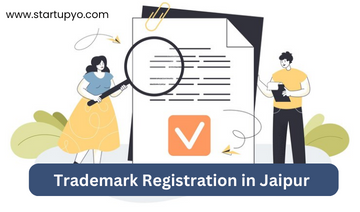About Professional Tax
Professional tax is a direct tax levied and collected by the state government, this tax is imposed on the income of a person that the person earns by practicing different professions. This tax is imposed by the state government of India for the infrastructure it provides to the citizens of India. This tax includes all types of practices or professions, trades, employment, and calling.
The Professional tax that is imposed on professions, callings, employment, and much more comes under Article 276 of the constitution of India. The state government is responsible for making laws for professional tax. For the purpose of the Income Tax Act of 1961, Professional tax is a deductible amount meaning it can be deducted from taxable income.
The Commercial Tax Department is in charge of collecting the professional tax, this department collects this tax from their respective states and in the end, this processional tax reaches the fund of the Municipality Corporation. The Professional tax varies depending from state to state, the tax department has set different rules and regulations to govern the professional tax depending upon the state. However, to impose professional tax all states follow a slab system. A Professional tax certificate is obtained by individuals who are operating a freelancing business without any employees. This Certificate is provided by the respective State Authorities of the individual.
Types of Professional Tax Certificates
There are two types of professional tax certificates, Professional Tax Enrolment Certificate, and Professional Tax Registration Certificate.
- PTEC also known as Professional Tax Enrolment Certificate, is a type of professional tax that includes business entities, through this certificate business entities pay professional tax. These business entities include both public and private limited companies, the professional is a director or Sole Proprietor.
- PTRC also known as Professional Tax Registration Certificate, in this type of professional tax certificate, The Government or Non-Government employer is in charge of deducting the tax. Both these departments deduct tax and then deposit it to the government. They deduct this tax from the salary of the employees.
Read More: What is the income tax E-filing registration?
Advantages of Professional Tax
Professional Tax has many different benefits and advantages in case of Restrictions, Avoiding Penalty, easy registration, claims Deduction, Development, Welfare Programs, and much more.
- Minimal Restriction: the advantage of professional tax is that it imposes minimal restrictions. One can simply comply with the Professional Tax which results in imposing minimum restrictions.
- Avoids Penalty: the benefit of professional tax is that it helps in avoiding Penalties. As professional tax is compulsory and needs to be paid as per the law. Its timely payment helps in avoiding penalties and saves the employer or a self-employed person from any kind of legal action.
- Easy Registration Process: Another benefit of professional tax is that it enables a smooth registration process. It has simple compliance which helps in the smooth and easy processing of professional tax registration.
- Implements Development and Welfare Programs: the advantage of professional tax is that it helps in organizing and Implementing different programs for the development and welfare of the region. State government uses this tax as a revenue source and this tax helps the government in the implementation of schemes for the welfare of the region.
- Deduction Claim: Another benefit of professional tax is that individuals can claim a deduction. On previously paid professional tax a deduction can be claimed by the employer or the self-employed person.
Professional Tax Applicability
Below mentioned are the people who are applicable for professional tax registration:
- The taxable entities are the company, firms, corporations, LLP, HUF, societies, associations, and clubs.
- The taxable entities that are professionals are Legal practitioners, Medical Representatives, Management Consultants, and Contractors who come in the category of professional individuals that are bound to pay professional tax.
Documents Required for Professional Tax Registration
The essential Documents that are required at the time of professional Tax Registration are mentioned below:
- Application form of Professional Tax.
- Company’s COI, AOA & MOA, and PAN attested by the directors of the company (in case the applicant is a company).
- Address proof and Identity proof of all the directors of the company, owner of Proprietor along with passport size photo.
- Company’s bank account details, Blank Cancelled Cheque, and Bank statement.
- Registered Office proof, in the case of rented property, you need to provide the rented agreement of the property, NOC from the owner.
- Company (Board Resolution), In case of Partnership (Declaration of consent by the concerned Partner, along with Salary and attendance register).
Read More: Types Of Bussiness Loans?
Professional Tax Registration Process
The Professional Tax Registration Process depends from state to state, its registration procedure varies from state to state. Returns need to be filed at specified intervals, these returns depend on the requirement of the states. Interested candidates like in the case of Professionals /Employers who want to register for professional tax need to follow the below-mentioned details.
- The first step of the registration process focuses on filing applications with the documents that are necessary. The interested applicant must file the application form and the requisite documents.
- In the second step, the focus is on submitting the application to the concerned government and department. The application with the necessary documents needs to be submitted by the applicant to the concerned state government. The Tax department needs a copy of the same, so the applicant needs to submit a copy of it to the tax department.
- The following step focuses on the Scrutinization by the Tax Authority, the tax authority has to scrutinize the application only to ensure that the application containing the information is correct. It examines the application and then proceeds further.
- In the last step, the registration certificate is issued. After successfully examining the information containing the application it will be proceeded further.
Penalties
The Professional Tax is applicable to different entities like An Individual, A Company, a Firm, a cooperative, society or Individual Association (incorporated or not), and A Hindu Undivided Family (HUF). All such applicable taxpayers have to pay professional taxes and have to follow professional tax policies. If in case the professional tax is not registered then jurisdictions may impose a penalty. However, the penalty depends on the state regulatory law for failure to register Profession Tax.
Penalties are imposed also for failing to submit the PT return, PT return needs to be submitted before its deadline. Penalties can be imposed on withholding PT return payments after they are due. The actual fine or the penalty is decided by the respective state’s professional tax regulations. Only those Businesses face the penalty of failing to register professional tax or failing to pay taxes later or failing to file returns by the deadline and face different fines, late fees, or even imprisonment.
This failure of making payments and failure to file a return by the deadline or due date carries additional penalties. For example, the Maharashtra government imposed a penalty for late filing or failure to pay.
- For Not obtaining PT registration, the Penalty Leviable is Rs.5/- per day
- For Late filing of PT return, the Penalty Leviable is Rs.1,000/-
- For Late payment of PT dues, the Penalty Leviable is Interest at 1.25% p.m. and the Penalty at 10%.
Read More: What is Indirect Tax?
Conclusion
Professional Tax is very important and needs to be submitted on time. In case it is not submitted by the due date, the entity can face penalties and very harsh sections. It has many different benefits and varies from state to state. Each state has a different set of procedures for the professional tax.
FAQ’s
Why is a Processional tax imposed by the state government?
The professional tax is imposed by the state government of India for the infrastructure it provides to the citizens of India.
Who is in charge of collecting the professional tax where it reaches?
The Commercial Tax Department is in charge of collecting the professional tax, this department collects this tax from their respective states and in the end, this processional tax reaches the fund of the Municipality Corporation.
How does the professional tax help in the implementation of welfare and development programs?
State government uses this tax as a revenue source and this tax helps the government in the implementation of schemes for the welfare and development of the region.
What is PTRC?
PTRC is also known as Professional Tax Registration Certificate, in this type of professional tax certificate, the Government or Non-Government employer is in charge of deducting the tax.



